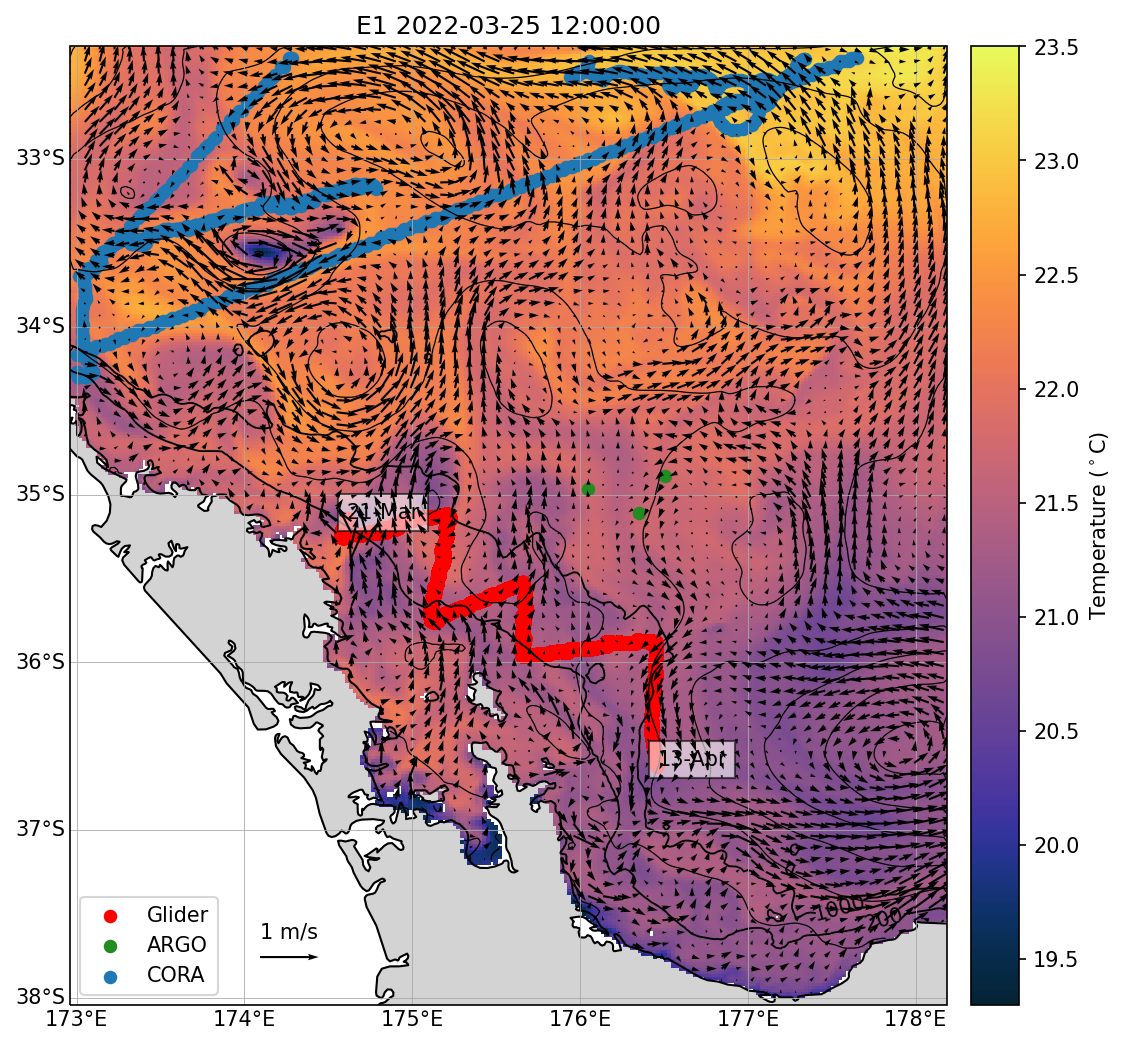MetOcean Solutions at the Joint EuroSea and OceanPredict Workshop 2022
This week, MetOcean Solutions’ team is presenting at the Joint EuroSea and OceanPredict workshop on Ocean Prediction and Observing System Design. Running from 29 June to 1 July, the workshop aims to support connecting, exploring, and advancing observation and ocean prediction efforts in a global context.
MetOcean’s Research and Development Science Leader, Dr Joao de Souza, is attending the event in-person at the Met Office in Exeter, UK. His talk on “Assimilation of fishing vessel derived observations into an operational ocean forecast system” is part of the session “Observing System Experiments (OSEs) and Observing System Simulation Experiments (OSSEs) in support of observing system design.”
“By deploying a New Zealand water temperature and pressure sensor – the Mangōpare sensor – in partnership with the fishing industry, we are building a new nationwide ocean observing capability. These observations are integrated into our open-access ocean models to understand the past and provide forecasts for the near future (7 days), increasing our capacity to plan and respond to emergencies and changes in the ocean environment,” says Joao. “Here we present the first results from a regional simulation with data assimilation of observations from the fully automated Mangōpare sensor attached to different fishing gear in New Zealand waters. The new observations are shown to improve our forecast accuracy, especially in the ocean subsurface and in regions of high economic activity – exactly where we need it the most.”
Modelled SST (color scale) and surface currents (black arrows) from E1 (satellite and glider) averaged over a day. The glider trajectory is shown in red. The independent datasets are shown in green (ARGO profiles) and blue (CORA surface drifters).
Following the same rationale in this session, MetOcean physical oceanographer Dr Carine Costa is virtually presenting her poster on “Improving ocean forecasts with subsurface data assimilation in the northeast shelf of New Zealand.” Her research provides an insight into the potential improvements of ocean dynamics near the shelf break with the assimilation of real-time glider observations.
“Data assimilation techniques are used in state-of-the-art ocean forecast systems to combine models and observations in real-time, providing a more accurate representation of the ocean state,” says Carine. “We have implemented a proof-of-concept forecast system with data assimilation in the northeast shelf of New Zealand and quantified the improvement of modelled temperature by adding subsurface data from ocean gliders. Our next goal is to evaluate the impact on the modelled ocean currents.”
The Mangōpare sensor, read more about the Moana Project.
Later in day two, MetOcean data scientist Dr Julie Jakoboski is virtually presenting “Crowd sourcing ocean observations for ocean forecasting data assimilation” during the session on “Coastal Ocean: Modelling, observing system design and product utility.” Her talk presents a Moana Project initiative to close the existing gap of near real-time, subsurface observations in coastal regions that impacts the accuracy of ocean forecasts where they are most needed. The Moana Project has designed and is currently deploying a low-cost, robust, near real-time ocean observing system New Zealand-wide. A fit-for-purpose programme was developed with cross-institutional partners and industry sectors to deploy temperature and depth sensors on commercial fishing vessels through New Zealand’s coastal and shelf regions.
“Currently, the sensor has been installed on more than 150 commercial fishing, research, industry, recreational, and education vessels throughout New Zealand. The measurements are assimilated into the Moana Project modelling suite and the resulting hydrodynamic forecast and hindcast are then provided back to the vessels,” says Julie. “This approach has the potential to provide near real-time, in-situ ocean observations for data assimilation in critical coastal regions worldwide.”
MetOcean Solutions is excited to be part of such an important event in the international ocean science calendar. Read more about the EuroSea and OceanPredict workshop here.


